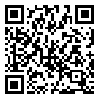Volume 21, Issue 1 (3-2024)
jor 2024, 21(1): 153-168 |
Back to browse issues page
Download citation:
BibTeX | RIS | EndNote | Medlars | ProCite | Reference Manager | RefWorks
Send citation to:



BibTeX | RIS | EndNote | Medlars | ProCite | Reference Manager | RefWorks
Send citation to:
Ahmadpour Samani P, Arman M H, Foukerdi A. Reward Allocation Based on the Process of Changing the Relative Efficiency. jor 2024; 21 (1) :153-168
URL: http://jamlu.liau.ac.ir/article-1-2057-en.html
URL: http://jamlu.liau.ac.ir/article-1-2057-en.html
Department of Management, Najafabad Branch, Islamic Azad University, Najafabad, Iran , hosein.arman@gmail.com
Abstract: (1531 Views)
Fair reward allocation with the aim of improving the performance and efficiency of employees and organizational units has long been considered by managers and organizational theorists. This allocation is usually based on the performance of the units over a period of time. The purpose of this study is to provide a new solution for fair reward allocation based on improving the performance of a unit in a period compared to its previous period, because sometimes a unit may be frustrated and not try to improve performance in future periods simply by comparing organizational units and ignoring the process of improving performance compared to its past. Therefore, in this study, the reward allocation between organizational units is based on the amount of change in their relative efficiency. For this purpose, first the ratio of inputs and the ratio of outputs are calculated for each unit in two consecutive periods. Then, the performance of the units is analyzed using data envelopment analysis and considering the ratio of percentage change in outputs to percentage change in inputs. Finally, according to the degree of satisfaction of the units, the reward is assigned to the units. The approach presented in the research is explained in the form of a case study in the banking industry.
Keywords: Performance Measurement, Data Envelopment Analysis, Relative Efficiency, Trend, Reward Allocation
Type of Study: Research |
Subject:
Special
Received: 2022/02/14 | Accepted: 2022/06/26 | Published: 2024/03/20
Received: 2022/02/14 | Accepted: 2022/06/26 | Published: 2024/03/20
Send email to the article author
| Rights and permissions | |
 |
This work is licensed under a Creative Commons Attribution-NonCommercial 4.0 International License. |






